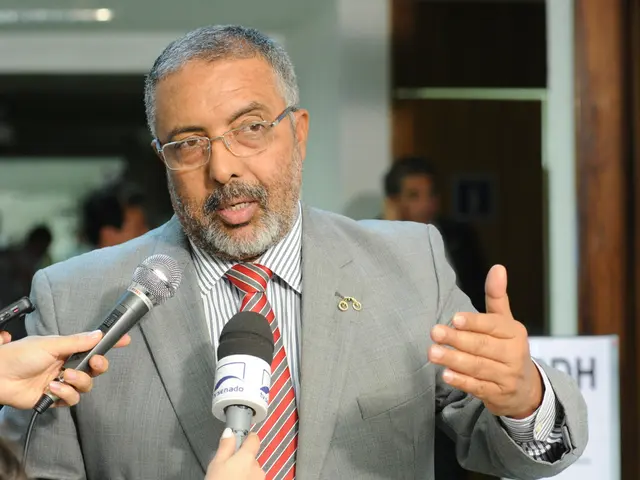Increasing Jihadist Influence in the Coastal States of the Gulf of Guinea Calls for a Fresh Strategy to Combat It
In the heart of West Africa, a troubling development is unfolding. Jihadist groups, traditionally confined to the Sahel region, are now expanding their reach towards the littoral states on the Gulf of Guinea, including Benin, Togo, Ghana, and Côte d'Ivoire.
Until recently, counterterrorism experts dismissed the possibility of jihadists infiltrating the relatively stable littorals due to their stronger security forces. However, groups linked to both the Islamic State in the Greater Sahara (ISGS) and the regional al-Qaeda franchise, Jama'at Nasr al-Islam wal-Muslimin (JNIM), have been moving with impunity throughout the W-Arly-Pendjari (WAP) Complex that spans Niger, Burkina Faso, and Benin.
The expansion is facilitated by socioeconomic vulnerabilities in peripheral communities and porous borders with high levels of low-grade criminality. Jihadists are exploiting mounting grievances among the Peuhl and other disenfranchised groups, capitalizing on socioeconomic marginalization, intercommunal violence, and illicit supply chains.
Ideology is not a major driver to jihadism, but associative religious factors are used by jihadists to connect with local communities on a sociopolitical level. They champion the perception that corrupt governments do not have marginalized communities' best interests at heart.
The response to this insurgency must be African-driven, through the G5 Sahel and the Accra Initiative, a coalition of West African countries, specifically led by the countries of the Gulf of Guinea region, launched in October 2017. Western partners need to approach jihadist expansion through a coordinated strategic effort, ensuring that development and humanitarian interventions are in lockstep with security assistance.
Civil society-community-based organizations, such as religious and trade associations or women's groups, have an outsized role in representing the local population and should be at the forefront of a counterinsurgency response. Counterterrorism missions need to build trust with communities and encourage civilian coordination with security forces by carrying out counter-violent extremism work in tandem with kinetic operations.
The ungoverned, disputed territory around the town of Koalou, at the intersection of Benin, Togo, and Burkina Faso, has become a safe space for jihadist movement and a staging area inaccessible to security forces. Ignoring rising intercommunal violence as a future indicator of jihadist expansion delays meaningful government response before violence becomes rampant.
The 2019 kidnappings of two French tourists in Benin's Pendjari National Park and the assassination of a Spanish priest traveling from Togo into Burkina Faso were watershed moments for jihadists in the littorals. These incidents underscore the need for a swift and effective counterinsurgency strategy.
Aneliese Bernard, a consultant with experience in stabilization, DDR, and civil-military engagement in West Africa and Mozambique, emphasizes the importance of addressing structural causes of underdevelopment and security forces' weakness that erode trust in government. The US and its partners should recalibrate their approach to counter-violent extremism and counterterrorism in the region, as containment has proven unsuccessful.
As the jihadist insurgency continues to expand southwards, it is crucial that all stakeholders work together to combat this threat and ensure the safety and security of the West African region.
Read also:
- United States tariffs pose a threat to India, necessitating the recruitment of adept negotiators or strategists, similar to those who had influenced Trump's decisions.
- Weekly happenings in the German Federal Parliament (Bundestag)
- Southwest region's most popular posts, accompanied by an inquiry:
- Discussion between Putin and Trump in Alaska could potentially overshadow Ukraine's concerns






